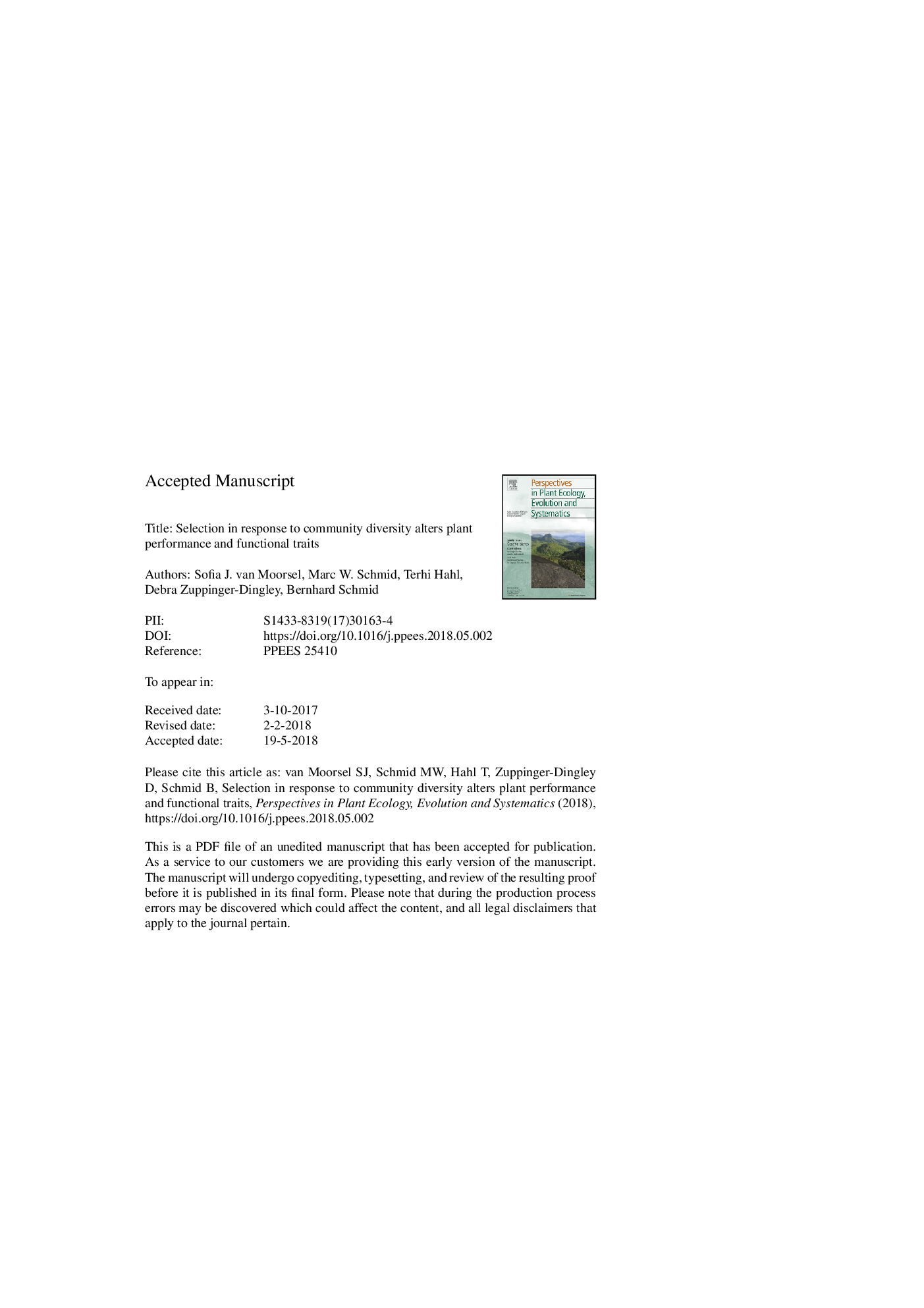| Article ID | Journal | Published Year | Pages | File Type |
|---|---|---|---|---|
| 8849491 | Perspectives in Plant Ecology, Evolution and Systematics | 2018 | 50 Pages |
Abstract
In grassland biodiversity experiments the positive biodiversity-ecosystem functioning relationship generally increases over time. However, we know little about the underlying short-term evolutionary processes. Using five plant species selected for twelve years in a biodiversity experiment in mixture or monoculture and plants without such a selection history, we assessed whether differential selection altered productivity, biodiversity effects, and functional trait differences within newly assembled monocultures and 2-species mixtures. Plants without a past community selection history in the biodiversity experiment produced the lowest assemblage biomass and showed the weakest biodiversity effects. In newly assembled mixtures, plants with a selection history in mixtures produced more biomass than plants with a monoculture selection history. Biodiversity effects were generally positive and differed significantly between selection histories. However, contrary to our expectations, biodiversity effects were not stronger for mixture-type plants. Biodiversity effects were influenced by both trait differences between plants and community-weighted means, but these relationships were mostly independent of selection history. Our findings suggest that twelve years of selection history in monocultures or species mixtures differentiated plants of each species into monoculture- and mixture-types. Such rapid evolution of different community-types within grassland species and its effect on ecosystem services and functioning are likely to be important for species conservation practice.
Related Topics
Life Sciences
Agricultural and Biological Sciences
Ecology, Evolution, Behavior and Systematics
Authors
Sofia J. van Moorsel, Marc W. Schmid, Terhi Hahl, Debra Zuppinger-Dingley, Bernhard Schmid,
